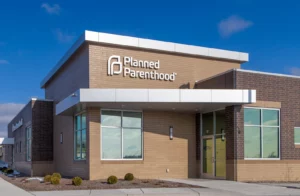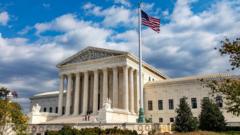Major pro-life organizations, led by 40 Days for Life, are pushing forward with key cases that may reach the Supreme Court, targeting issues like buffer zones, Planned Parenthood funding, and abortion tourism. The outcomes of these lawsuits could have a lasting impact on abortion policy across the nation.
Pro-Life Legal Battles Gain Traction: A Pivotal Year Ahead

Pro-Life Legal Battles Gain Traction: A Pivotal Year Ahead
As pro-life advocates mount significant legal challenges, 2024 could reshape abortion policy in the United States.
The fight against abortion is intensifying as pro-life organizations ramp up legal challenges that could fundamentally alter abortion policy in the United States. Key cases targeting free-speech buffer zones, funding issues related to Planned Parenthood, and cross-state abortion access are currently in play, with several poised to reach the Supreme Court.
A noteworthy push comes from the grassroots organization 40 Days for Life, which launched the Institute of Law and Justice (ILJ) in August 2023. The ILJ has aggressively defended pro-life advocates legally and boasts a perfect record thus far. Among its most ambitious cases is 40 Days for Life v. County of Westchester, challenging a 100-foot buffer zone in New York. In anticipation of a potential Supreme Court ruling that could invalidate such zones nationwide, Westchester County ultimately repealed its ordinance. However, the fight against other perceived unconstitutional speech restrictions continues.
Additional lawsuits, including Turco v. City of Englewood, New Jersey, and Coalition Life v. City of Carbondale, Illinois, focus on the confines local laws impose on pro-life advocacy near abortion facilities.
The ILJ's efforts extend to legal action against the Department of Justice concerning the case of pro-life advocate Mark Houck, whose home was raided and who was arrested on charges that have since been dismissed. This lawsuit challenges the perceived overreach of federal authority against activists.
Allegations against Planned Parenthood of electioneering, potentially violating federal tax-exempt laws, also emerge. Legal counsel for the ILJ claims that some Planned Parenthood clinics were involved in political campaigns, which could lead to serious consequences if substantiated in court.
Simultaneously, the Supreme Court is deliberating on Medina v. Planned Parenthood South Atlantic, a case that could affect how Medicaid funding is allocated, potentially redirecting taxpayer dollars away from abortion services.
Another area of focus involves "abortion tourism," wherein minors are transported across state lines to obtain abortions, often without parental consent. Cases like Matsumoto v. Labrador and Welty v. Dunaway may set important legal precedents on this contentious issue.
With significant cases advancing towards the Supreme Court, 2024 presents a critical juncture for pro-life advocates. The outcomes of these lawsuits could not only alter the financial support for organizations like Planned Parenthood but also reshape legal protections for the unborn and the dynamics of free speech related to abortion advocacy, thereby influencing the abortion landscape in America for years to come.





















